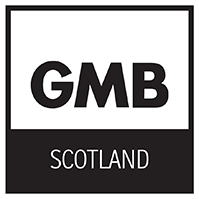GMB Scotland urges swift pay talks on council pay
GMB Scotland has called for a new urgency in public service pay talks after lodging this year’s claim with council leaders.
The union wants workers to get an extra £1.50 an hour and details the proposed rise in documents lodged with Cosla, representing Scotland’s local authorities, before council leaders meet for the first time in 2024.
However, GMB is also calling for interest to be charged on backdated pay in a bid to ensure a greater urgency from council leaders. Staff in some local authorities are still waiting for the rise agreed last year.
Keir Greenaway, GMB Scotland senior organiser in public services, said pay negotiations took far too long in 2023 and said Cosla must engage with unions with more speed and decisiveness.
“It is clearly unacceptable that our members in some councils have still to receive a rise that was agreed last year but it sums up everything that is wrong with the pace of these negotiations.
“Council must no longer sit on money due to workers struggling to make ends meet and, if they do, they should pay interest. Perhaps that will focus their attention.
“After last year’s needlessly long and protracted process, we have put in a claim for the pay rise our members deserve at the earliest opportunity. We do not want to waste a day."
The union says its claim for an extra £1.50 an hour would ensure more than half the workforce receives a rise above 10% with four in five getting at least 7.5%.
It said the lowest paid workers deserve the biggest rises but said the claim would mean almost every council worker getting a rise of more than 5%, the projected rate of inflation in 2024.
However, Greenaway said talks must begin without delay, adding: “There is no excuse for all the wasted weeks and months in our negotiations with Cosla.
“It is frustrating for those involved in the talks but far more frustrating for the workers who deserve pay rises to be agreed fairly and with as much urgency as possible.
“We want our members’ money in their bank account as soon as possible and will discuss our members’ pay claim any time, anywhere. Cosla needs to show that same urgency.”
The union’s pay claim also urges councils to pilot four-day weeks for frontline staff and highlighted research suggesting shorter working weeks increase productivity and reduce sickness while giving staff a better life-work balance.
The Scottish Government last week confirmed 140 staff at South of Scotland Enterprise are now working a 32-hour-week with no loss of pay as part of a pilot.
However, Greenaway said more trials are urgently needed to detail how frontline workers can benefit, adding: “The clear benefits of shorter working weeks to staff and employers has been well documented and has been discussed for years. It is beyond time for the changes to be tested and properly assessed.
“Public service workers are under increasing pressure to maintain crucial services as support is stripped away and that stress is taking a toll on them and their families while undermining their vital work.
“It may be more straightforward to arrange office-based roles on a four-day basis but the trials need to be far more extensive and explore how frontline services can be delivered and protected while securing the benefits of shorter working weeks.”


